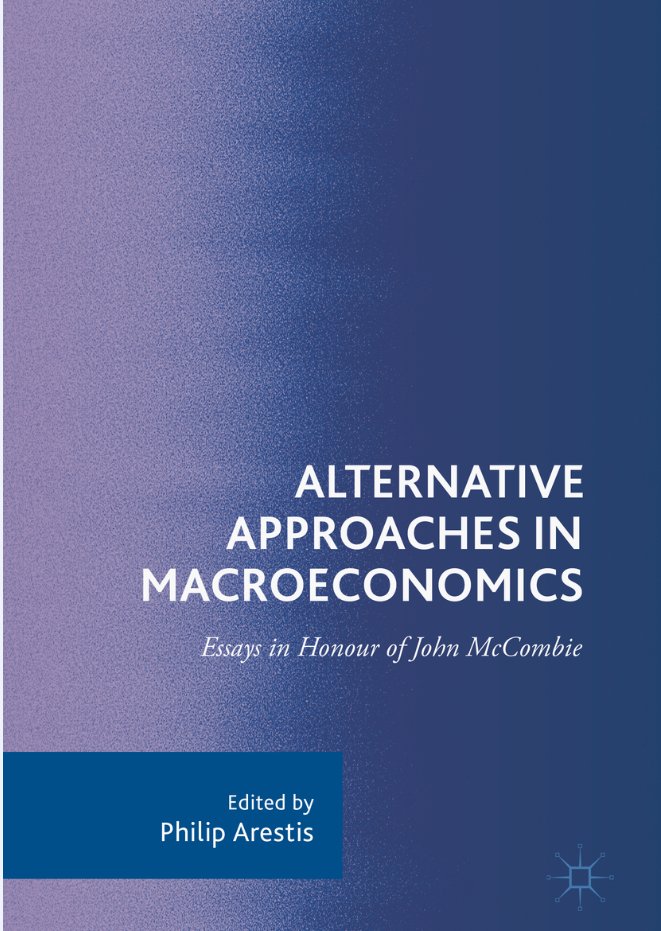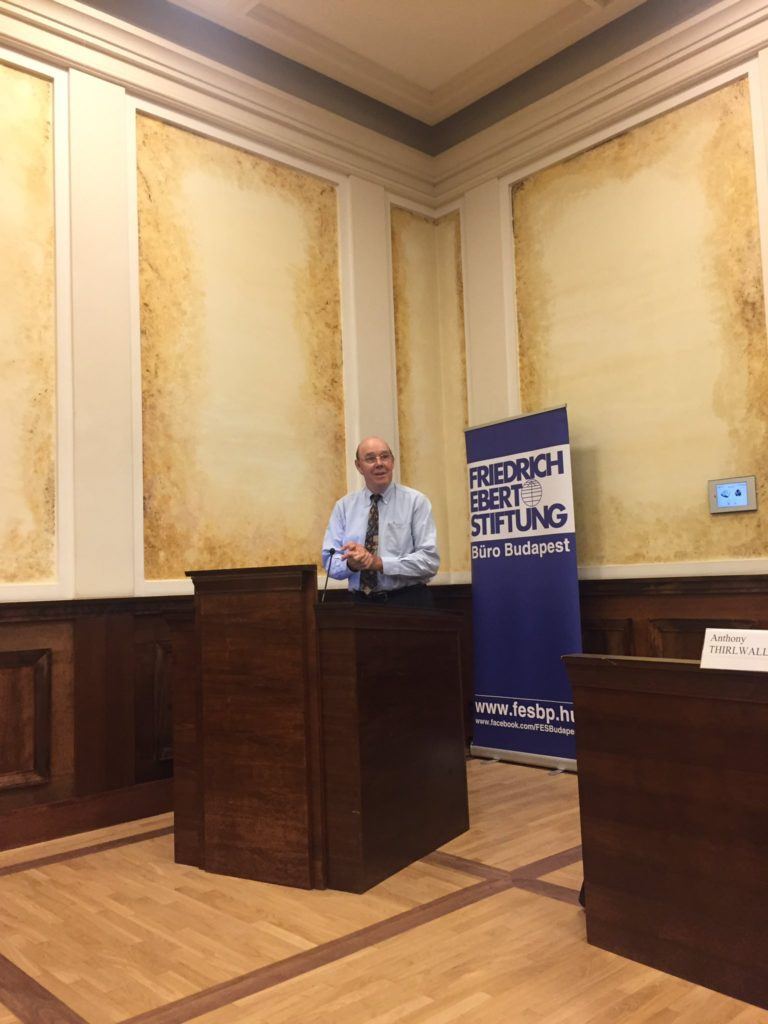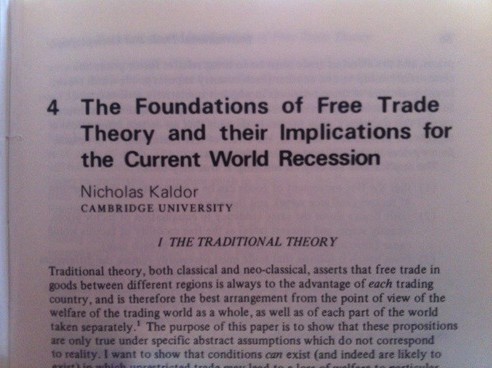Kaldorians have been stressing how the Euro project is a half-baked idea. Nicholas Kaldor himself predicted in 1971 that the Euro Area without a federal government would be a failure and warned the establishment.
Anthony Thirlwall—the literary executor of Kaldor—also had his great predictions.
In an article, The Euro And Regional Divergence In Europe, in the book, The Eurosceptical Reader 2, in the year 2000 even predicted the rise of dark forces and the alt-right!
Some quotes:
Page 33:
The regional disaffection that will be caused by deteriorating economic circumstances in countries that lack the policy instruments to deal with economic crisis can too easily become the breeding ground for nationalism and fascism, and political resentment, as witnessed in Europe in the 1920s and 1930s. By all means, let there be more coordination of economic policies in Europe and let the countries of Europe strive for greater political cooperation in areas such as defence, human rights and relations with other countries, but not by luring them into an economic straitjacket over which there is no democratic control and from which there is no easy escape. This is a recipe for political turmoil and the fragmentation of Europe that Britain would be wise to steer clear of.
[italics: mine]
Page 28:
… paradoxically, the euro could become a threat to European integration and stability if it exacerbates regional differences within the EU which I believe it is likely to do. Shocks to countries and to regions within countries are rarely symmetric. Without the instruments to cope, asymmetric shocks will exacerbate regional differences, with the prospect of civil strife, political unrest and disaffection with the whole EU project in the affected regions. Regional policies in the EU are a poor substitute for the ability of individual countries to cope with shocks in their own way.
Page 30:
Loss of economic sovereignty
Adoption of the euro means the abandonment of all the traditional weapons of economic policy that in the past have served countries reasonably well. It is hard to imagine how the countries of Europe would have fared in the post-war years without the active use of monetary, fiscal and exchange rate policy. Relinquishing these instruments of policy could spell disaster for individual countries in the future.
Page 32:
Nowhere in the pacts and conditions governing Economic and Monetary Union and the single currency are there any safeguards against deflationary policies and deflationary conditions such as rising unemployment, falling prices or even governments running budget surpluses. The ‘rules of the game’ are asymmetrical, biased against inflation, as indeed they are at the international level whereby the International Monetary Fund penalises countries in balance of payments deficit, but not those in surplus, which therefore imparts deflationary bias in the world economy.
Page 49:
It would be churlish to wish the euro ill, but I fear that it is going to do great damage to the economies of Europe and to the noble objective of greater European harmony and cooperation. Economic and social disparities between the countries and regions of Europe are still vast, and there is nothing in the euro itself which is going to eliminate these disparities. If anything, without an effective regional policy and fiscal transfer mechanisms, they are likely to widen, making the task of political integration – if that is the ultimate aim of the euro – that much more difficult. The United Kingdom government would do well to steer clear of this risky venture for more than the lifetime of even the next Parliament.
[italics: mine]
Anthony Thirlwall. Picture credit: Wikipedia





